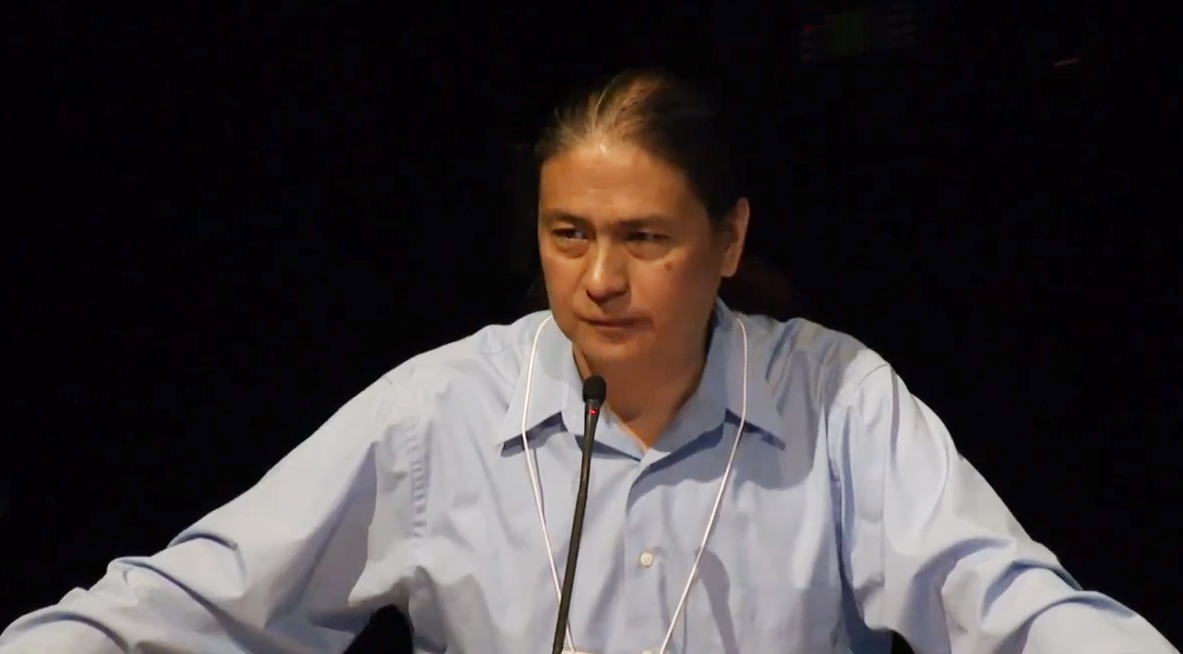Network Calculus Pioneer, UC San Diego Professor Rene Cruz, Dies at 54
By Tiffany Fox, (858) 246-0353, tfox@ucsd.edu
San Diego, Calif., July 8, 2013 — Rene Leonardo Cruz, professor of electrical and computer engineering at the University of California, San Diego, and a distinguished scholar in the field of communication networks, died at his home from complications of pancreatic cancer on Saturday, June 29. He was 54.
|
Throughout his career, Cruz avidly researched constrained resource allocation problems. He was able to apply his methods to a broad range of domains, including packet, circuit, wireless, photonic, video distribution, peer-to-peer and surface transportation systems. As a named inventor on 39 patents, most recently in March 2013, Cruz was directly involved in transferring theoretical insights into deployed implementations. He collaborated with information theorists as readily as with traffic engineers responsible for critical Internet infrastructure. His doctoral students related to Cruz as a theoretician, even as local startups repeatedly sought his consulting services.
In the latter part of his academic career, Cruz – a longtime academic participant in the California Institute for Telecommunications and Information Technology (Calit2) as well as UC San Diego’s Center for Wireless Communications (CWC) and Center for Networked Systems (CNS) – recognized that relying on a few dominant search engines, information aggregators and social networking applications made the free flow of information more vulnerable to manipulation by a central authority. Cruz had already conceived a system, called Grapevine, which enabled participating nodes to exploit network coding to rapidly diffuse information through ad hoc connections – bypassing the need for centralized services.
In his waning days, Cruz spoke often about his quest for a distributed system that melded connectivity and content with transparency of information curation and governance.
Cruz was repeatedly recognized for his work. In 1991 he received the National Science Foundation Presidential Young Investigator Award. A year later, he received the Electrical and Computer Engineering (ECE) department’s top teaching award at UC San Diego. In his election to be a Fellow of the IEEE in 2003, Cruz was cited for his expertise in the area of Quality-of-Service guarantees in packet-switched networks. In 2007 he was named a Jacobs School Ericsson Distinguished Scholar, a 5-year faculty fellowship under Ericsson's support for Calit2. The following year he received the S. O. Rice Paper Award from the IEEE Communication Theory Society. In 2009, Cruz was honored with the INFOCOM Achievement Award for his “fundamental and pioneering contributions to network calculus.”
|
In 2004, Cruz co-founded Mushroom Networks, a spin-off from work that had begun at UC San Diego. The company builds and markets systems that compose faster and more reliable connections from low-cost Internet channels. For three years in a row, from 2006 to 2008, Mushroom Networks was a finalist for CONNECT’s Most Innovative Product Award in Wireless Communications, and in 2008, the company won the award.
Rene Cruz was born in 1959 in Urbana-Champaign to Patria Cruz and Jose Cruz, then a Professor of Electrical Engineering at the University of Illinois Urbana-Champaign. He attended University of Illinois as an undergraduate and attended MIT for his Master’s degree. He joined the ECE faculty at UC San Diego in 1987 after receiving his Ph.D. from the University of Illinois at Urbana-Champaign. At a recent gathering with friends and colleagues, Rene recounted that his parents derived his name Rene Leonardo Cruz (RLC) from the engineering jargon for the three building blocks of electrical circuits; resistors (R), inductors (L) and capacitors (C). In keeping with their embrace of engineering symbols, his twin daughters were christened Amanda Cruz and Donna Cruz, spelling AC/DC – jargon for the two forms of electricity that flow through circuits.
Cruz is survived by his wife Erin, daughters Amanda Cruz and Donna Cruz, parents Patria Cruz and Jose Bejar Cruz, Jr., as well as his siblings Fe Cruz Langdon, Ricardo Cruz, Sylvia Cruz Loebach and Loretta Cruz Spray.
Memorial services will be held at El Camino Memorial Sorrento Valley Chapel, 5600 Carroll Canyon Road, San Diego, California 92121 on Wednesday, July 10, 2013 from 5-7 P.M. Family and friends are invited to come for a time of reflection from 4-5 P.M.
Memorial gifts may be made in the name of Rene Cruz and directed to the University of California, San Diego at http://ucsd.edu/cruz-memorial/. Funding will benefit programs on early detection of pancreatic cancer under the stewardship of Dr. Michael Bouvet.
Media Contacts
Tiffany Fox, (858) 246-0353, tfox@ucsd.edu
Related Links



